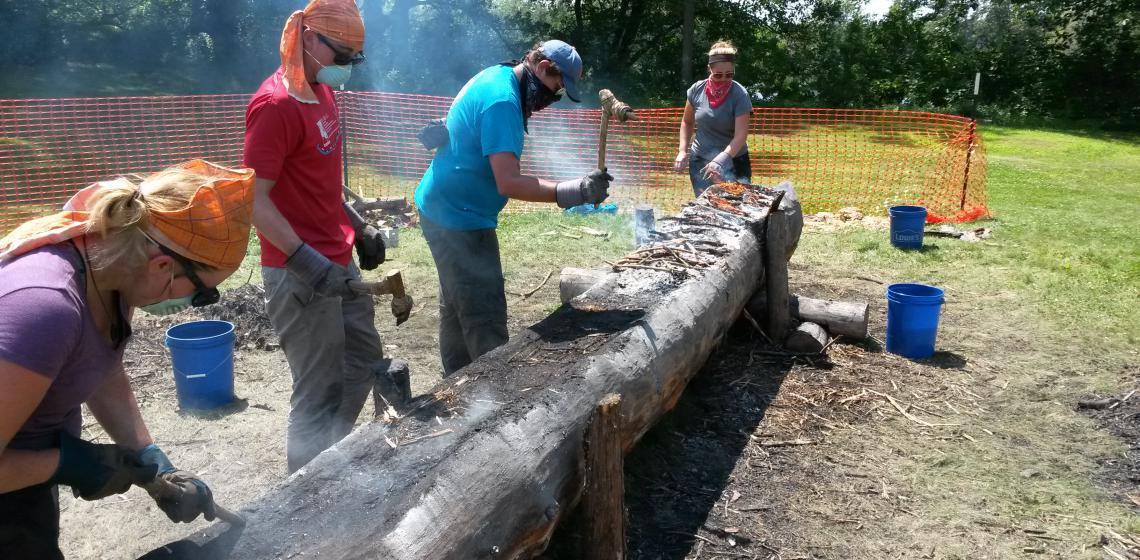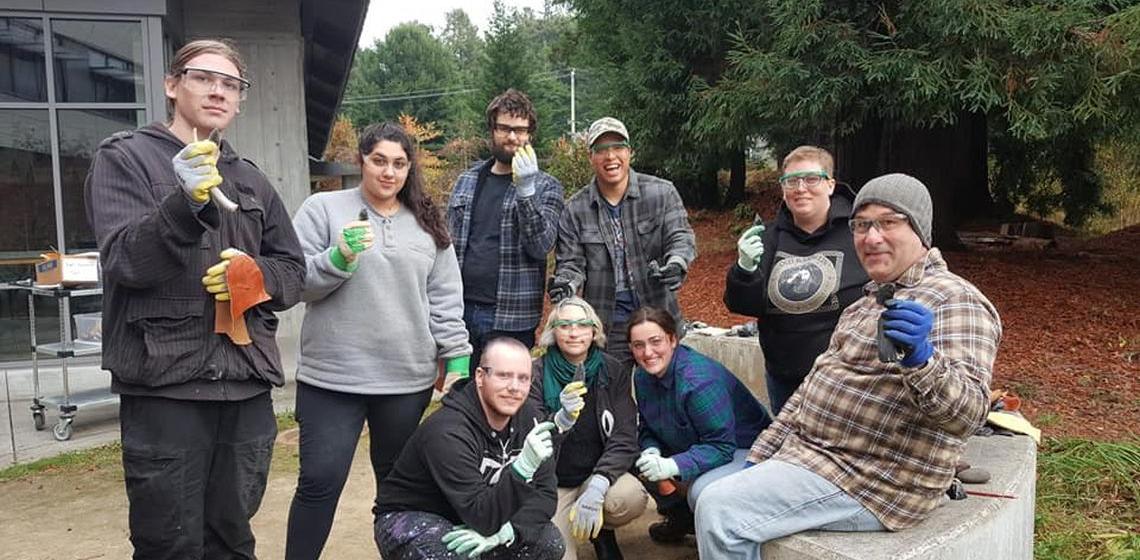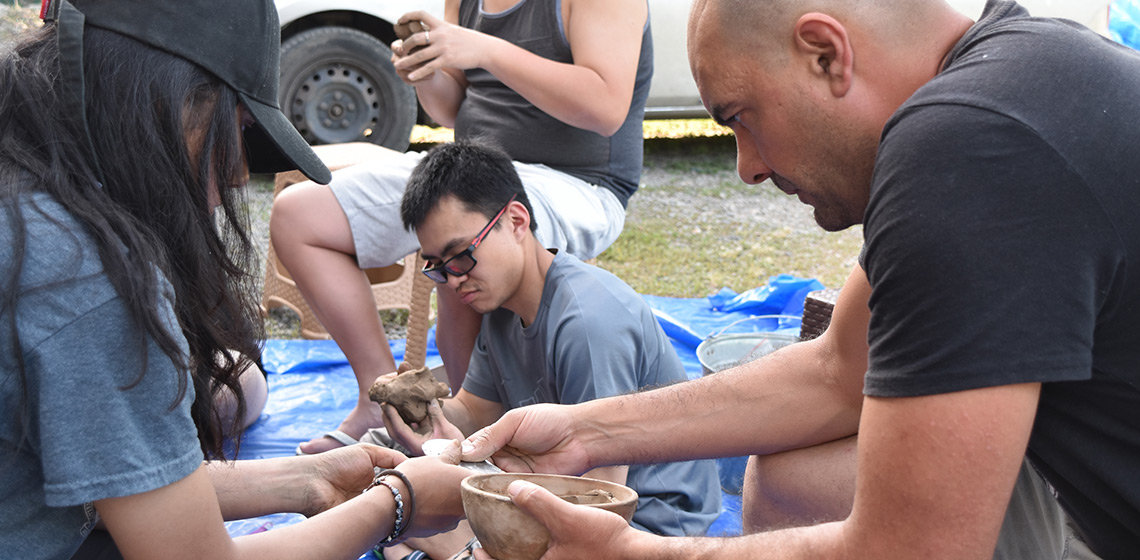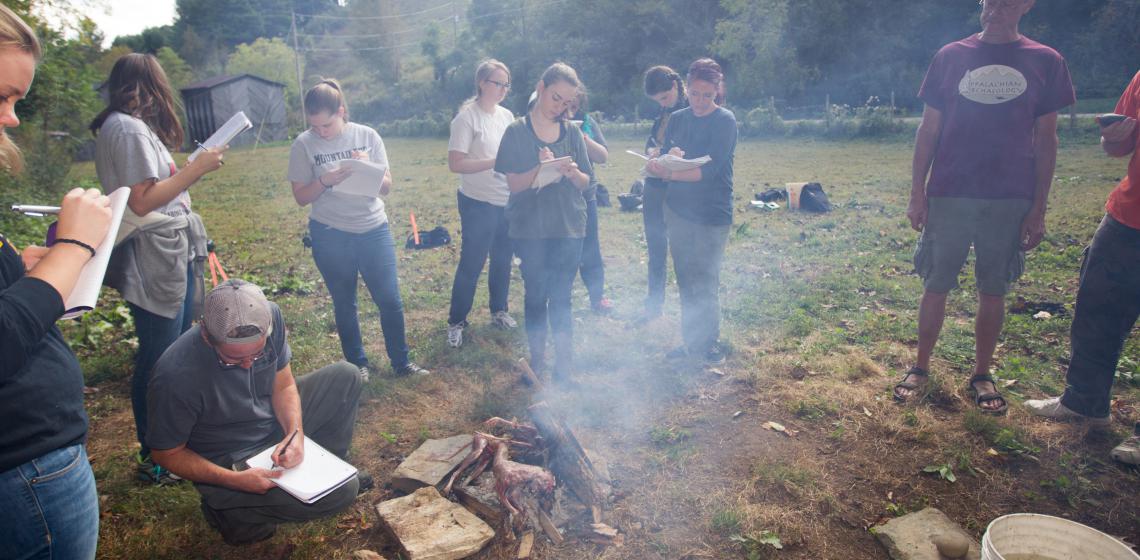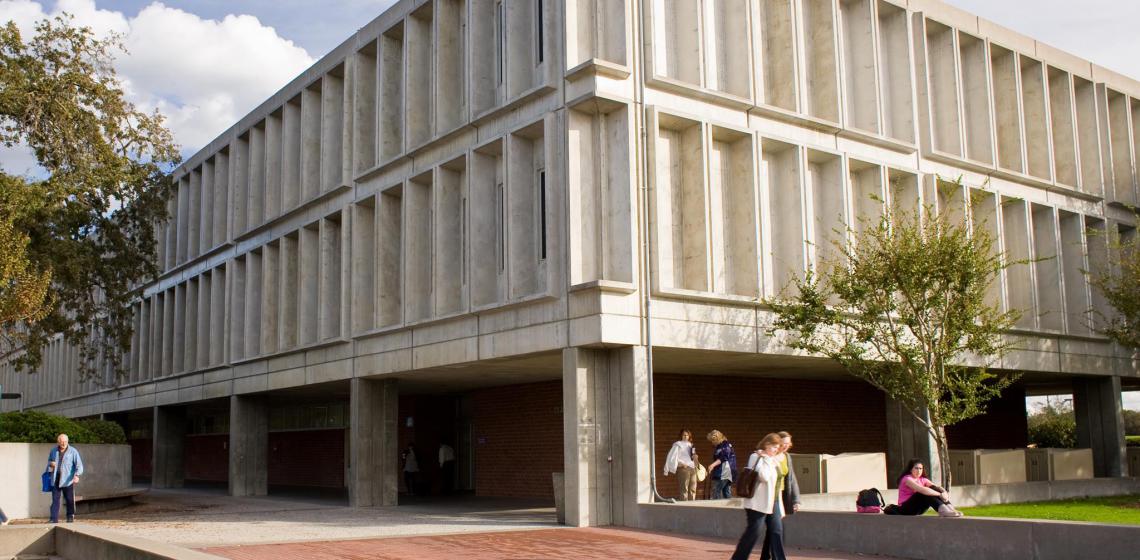Humboldt State University (HSU), in Northern California, is a small community-based campus, situated in the great redwoods of the Pacific North coast. The college town setting on the California North Coast, 8 miles (13 km) north of Eureka is notable for its natural beauty. The university is divided into three colleges: the College of Arts, Humanities, and Social Sciences; the College of Natural Resources and Sciences; and the College of Professional Studies.
Students are provided with a holistic education in the discipline of Anthropology. As part of the curriculum in the Department of Anthropology, students can explore numerous avenues in Experimental Archaeology, including flintknapping, metal casting, basketry, cordage, textiles, and bookbinding, just to name a few.



